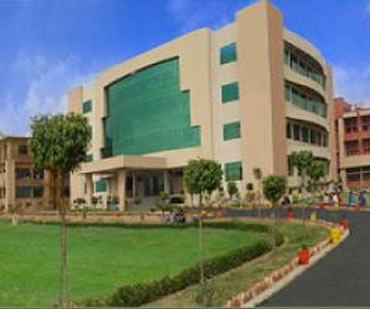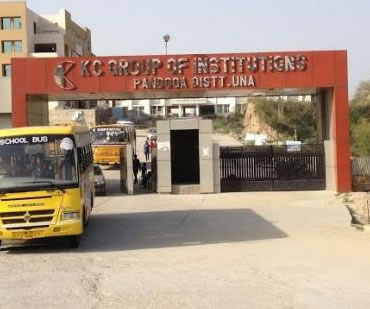Read the Chairman sir article published in career 360
Download:
KC Advertorial_new.pdf
download/ PTU.pdf
Final Cover April.pdf
KC Group of Institutions has established itself as a premier institute not only in the state but in the entire country. It is also motivating the rural people to be educated. �In our locality people don�t like to send their girls to other big cities for higher education and I thought of starting institutions of higher education across various disciplines in the rural areas. And I started from Nawanshahr,� shares Prem Pal Gandhi, Chairman, K C Group of Institutions. For attracting students from other states and countries, the real estate entrepreneur Prem Pal Gandhi has established two campuses: first in Nawanshahr, Punjab and second in Pandoga, Himachal Pradesh, having modern infrastructure and facilities.
Nawanshahr Campus In 2004 KC group established its first higher education institution, K.C. College of Engineering and Information Technol- ogy, Nawanshahr which has connected the people with engineering education not only in Nawanshahr but also with in the area of 40 Km. This successful initia- tive was further broadened in 2005 with the establishment of KC college of Edu- cation and KC college of Hotel Manage- ment which connected education with a practical approach. In the Institute of Hotel Management, restaurant was established according to the need of the industry where the skills of the individuals are pruned by focusing on the practical edu- cation so that they can fetch handsome hotel jobs in and outside the country. In 2006, KC Polytechnic College was started to impart diploma education to the students. In 2008, with the divergence towards management, KC group of Institutions started a new wing which was established in the name of KC College of Manage- ment and Computer Application. This new wing was created with the aim to prepare managers within the city and to attract rural people to the management courses. According to Chairman Prem Pal Gandhi around 5000 students are currently studying in this large campus.
Una campus The Campus at Pandoga, Una in Himachal Pradesh was established in 2009. This campus has KC Institute of Technology, KC Institute of Management, KC Poly- technic, KC Institute of Pharmaceutical Sciences & KC Public School. �All insti- tutes have got the best infrastructure and are in the process of adding more facilities to meet the challenges of 21st Century,� shares Chairman Prem Pal Gandhi. Around 2,000 students are cur- rently studying in this campus.
Wide range of Courses Here students can pursue a degree across a wide range of subjects in Engineering, Management, Hotel Management, Media and Animation, Computer Application, Mass Communication, Commerce, Phar- macy and Diploma Engineering. Students may pursue graduation, postgraduation and diploma programmes in both these campuses.
Association with industry KC Industry Interface Center (KCIIC) has been established to bridge the gap between the industry and academia. It will connect the students directly with the industry and for that an MoU has been signed with leading industry part- ners. Industry specific project assistance will also be provided. Industry specific R & D activities and initiatives will be taken.
Scholarship for girl students For promoting girls education, the group is providing special scholarships to the girl students. According to Chairman Prem Pal Gandhi, 25% reduction in the amount of fees of any course is offered to the girls students.
Future initiatives The chairman also shares that improv- ing the quality of education will remain in focus in future before any further expansion. A comprehensive �E-learning� initiative is on the anvil which will funda- mentally alter the ways in which students study and learn. All the B.Tech and MBA students are being provided laptops so that they can do their assignments online. �We are also planning to start a medical college in Nawanshahr, in collaboration with Fortis Group,� shares Chairman Prem Pal Gandhi. �I want to take this group to the university-level in the com- ing five years,� he concludes.








